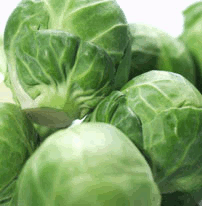Research Shows How Omega-3 Fats Prevent Breast Cancer
Epidemiological research has clearly identified a significant inverse correlation between a woman's consumption of foods rich in omega-3 fats and her risk for breast cancer. (For more information about this research see another breaking News About the Healthy Way of Eating story, Epidemiological Research Shows Omega-3 Fats Protect against Breast Cancer ) Now laboratory studies are explaining why this is so.
When human breast cancer cells are exposed to omega-3 fats such as eicosapentaenoic and docosahexaenoic acids (EPA and DHA), cancer cell apoptosis (self-destruction) increases.
Recent in vitro (test tube) evidence suggests that this beneficial effect is related to the fact that when omega-3s are consumed in the diet, they are incorporated into cell membranes where they promote cancer cell apoptosis via several mechanisms:
- Omega-3 fats inhibit a pro-inflammatory enzyme called cyclooxygenase 2 (COX 2), which promotes breast cancer.
- Omega-3 fats activate a type of receptor in cell membranes called peroxisome proliferator-activated receptor (PPAR)-ã. PPAR-ã is not only a key regulator of lipid (fat) metabolism, but is also capable of shutting down proliferative activity in a variety of cells including breast cells.
- Omega-3 fats increase the expression of two genes, BRCA1 and BRCA2. BRCA1 (breast cancer gene 1) and BRCA2 (breast cancer gene 2) are tumor suppressor genes that, when functioning normally, help repair damage to DNA, thus helping to prevent cancer development.
In 1994, researchers discovered that women who carry genetic mutations of BRCA1 or BRCA2 are at higher risk of developing both breast and ovarian cancer than women who do not have these mutations. Currently, women with BRCA1 mutations account for 5% of all breast cancer cases.
Differences in the actions of omega-3 and omega-6 fats have been observed on these genes. Omega-3 fats have been found to reduce cancer cell growth, while omega-6 fats have been found to promote cancer growth.
When researchers examined the expression of BRCA1 and BRCA2 in breast cell lines after treatment with both omega-6 and omega-3 fats, they found that omega-3 fats found in cold water, wild caught fish (DHA and EPA) were able to induce increases in BRCA1 and BRCA2, but omega-6 fats, found in meat and dairy products and oils such as corn and safflower oil, did not.
However, although the omega-6 fats did not affect the activation of the breast tumor suppressor genes, BRCA1 and BRCA2, these fats are used in the body to produce a type of inflammatory hormone-like chemical called the Series 2 prostaglandins. While inflammatory reactions are needed in the body both for normal immune function and to remove damaged tissues, too much inflammation is a contributing factor in many degenerative diseases, including cancer. Excessive consumption of omega-6 fats tends to promote inflammation, which may explain, at least in part, their observed cancer-promoting effect.
Omega-3 fats are found in high concentrations in several of the World's Healthiest Foods, specifically, wild-caught cold water fish such as salmon, cod, and tuna, and nuts and seeds, such as walnuts and flaxseed.
Want to learn more about these cancer-preventive essential fats? Click omega-3 fats.
For suggestions as to how to enjoy more omega-3-rich foods as part of your healthy way of eating, click on the Recipe Assistant, select the fish, nut or seed desired from the healthy foods list, and click on the Submit button. A list containing links to all the World's Healthiest Foods' recipes containing these foods will appear immediately below.
References: Stoll B.A., n-3 Fatty acids and lipid peroxidation in breast cancer inhibition. British Journal of Nutrition, March 2002, vol. 87, no. 3, pp. 193-198(6). Bernard-Gallon D.J; Vissac-Sabatier C.;Antoine-Vincent D; Rio P.G. Maurizis J-C.; Fustier P.; Bignon Y-J. Differential effects of n-3 and n-6 polyunsaturated fatty acids on BRCA1 and BRCA2 gene expression in breast cell lines. British Journal of Nutrition, April 2002, vol. 87, no. 4, pp. 281-289(9).






